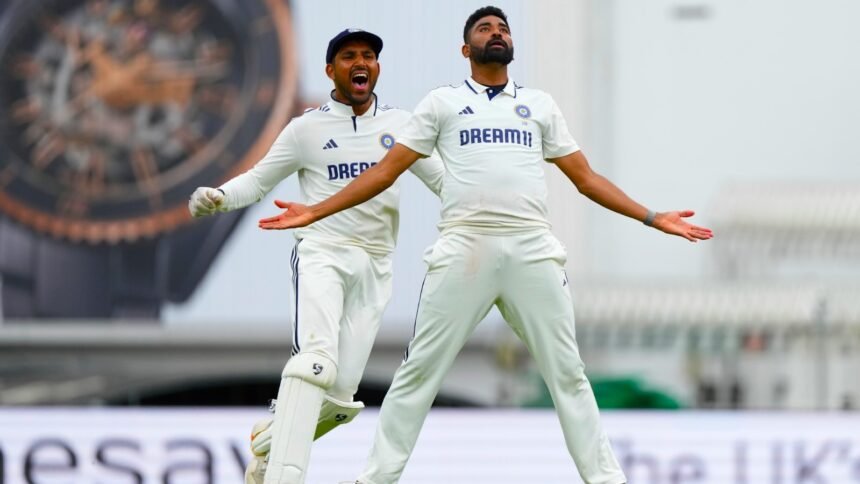The recently concluded Anderson-Tendulkar Trophy ended in a 2-2 draw between India and England, with Indian players topping both the batting and bowling charts. Captain Shubman Gill was the highest run-scorer with 754 runs, while pacer Mohammed Siraj took the most wickets (23), including a five-wicket haul in the final innings at The Oval. Siraj sealed India’s six-run victory by dismissing England’s Gus Atkinson on the final day, a yorker that Sunil Gavaskar called his “enduring memory” from the series.
“There will be several moments to cherish from the series: Gill’s batting — very rarely do you get to see batting as pure as this — and his captaincy, Stokes’ superhuman efforts with both bat and ball, the Indian fast bowlers’ marathon spells, Joe Root’s classy centuries, Rishabh Pant batting as only he can, as also Harry Brook and both also chirping as only they can. But the enduring memory will always be Mohammed Siraj’s yorker that flattened the off-stump of Gus Atkinson to give India a win to level the series. After the disappointing last season in Test cricket, this would no doubt be the happiest moment in recent times for Indian cricket lovers. Thank you, Shubman, and your boys,” Gavaskar wrote in his column for Sportstar.
The series, previously named the Pataudi Trophy after former captains Iftikhar Ali Khan and Mansoor Ali Khan Pataudi, was renamed to honour James Anderson and Sachin Tendulkar.
Earlier this year, when Australia had won the Border-Gavaskar Trophy 3-1, Gavaskar was not present at the Dias to hand over the trophy with former Australian captain Alan Border doing the honours alone. The plan by Cricket Australia was that Allan Border would present the trophy if Australia won and Sunil Gavaskar would if India retained it. Gavaskar, who had shared his disappointment at that time, also talked about how he wanted Tendulkar and Anderson to present the trophy to the two captains, Shubman Gill and Ben Stokes after the 2-2 draw and how he sees a similarity in this incident with the Border-Gavaskar Trophy presentation.
“This was the first-ever series named after Sachin Tendulkar and Jimmy Anderson, two of cricket’s greatest legends. One would have expected both to be present to give the trophy to the two captains, especially since the series ended in a draw. To the best of one’s knowledge, both were in England at the time. So, were they simply not invited? Or was this similar to what happened in Australia earlier this year, when only Allan Border was asked to present the Border-Gavaskar Trophy because Australia had won the series? Since this England series was drawn, perhaps neither was asked to attend the presentation,” Gavaskar wrote further.
Post the renaming of the series, BCCI and ECB had announced that the Pataudi Medal of Excellence will be awarded to the winning captain of the series. With the series being drawn, it was decided to give the medal to both the captains. Gavaskar was of the view that the Pataudi medal could be given to the Man of the Series instead of the winning captain.
“Mostly around the world, administrators are brought in to ensure profits and are quite good at it, but they may not have much knowledge about the history of the sport they are presiding over. So, these little gestures are not in their scheme of things. Nobody from the Pataudi family was there either, for the Pataudi medal, which was to be presented to the winning team’s captain. The drawn series showed how silly this idea was of trying to make up to the Pataudis by retiring the trophy named after them. Every time the series is drawn, the medal can’t be presented, can it? Wouldn’t it be better, therefore, to have the medal for the Man of the Series than give it to the winning team’s captain? And what if the captain himself has had an ordinary series and had little impact on the result?” Gavaskar wrote.







